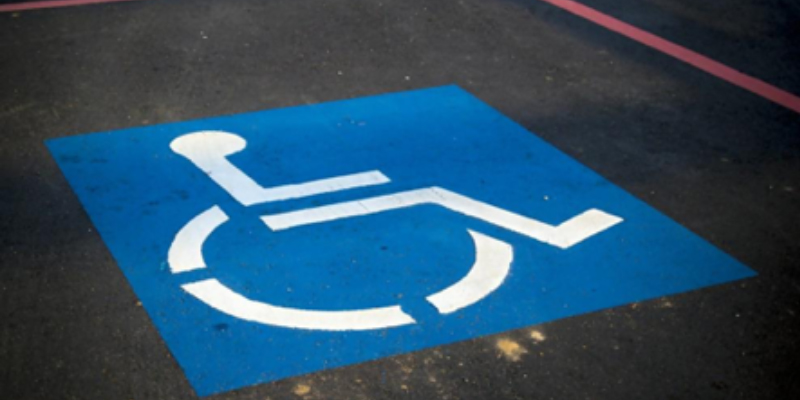
Receiving your disabled parking permit can be a confusing and tricky experience. Each state within the United States has its own rules and regulations about who can have a disabled parking permit. Even a city can have its own set of various laws for disabled parking.
If you’re looking for some clarity, this guide is for you. Let’s dive into how to get your disabled parking permit in New Jersey.
Do You Qualify?
Because New Jersey has its own set of laws on who can own a disabled parking permit, you must understand who exactly qualifies. You must be able to meet at least one criterion given or more. This is the first step to obtaining your disabled parking permit. Here are the prerequisites in New Jersey:
- You must have lost the use of one or more limbs as a consequence of paralysis, amputation, or other permanent disability.
- You must be severely and permanently disabled and cannot walk without the use of or assistance from a crutch, cane, brace, prosthetic device, wheelchair, another person, or other assistive devices.
- You must suffer from lung disease to such an extent that your forced (respiratory) expiratory volume for 1 second when measured by spirometry, is less than 1 liter, or the arterial oxygen tension is less than 60 mm/hg on room air at rest.
- You must have a cardiac condition to the extent that your functional limitations are classified in severity as Class II or Class IV according to the standards set by the American Heart Association.
- You must be severely and permanently limited in the ability to walk because of an arthritic, neurological, or orthopedic condition.
- You cannot walk 200 feet without stopping to rest
- You must have a permanent sight impairment of both eyes as certified by the NJ. Commission of the Blind.
What exactly are the functional limitations standards set by the American Heart Association?
The prerequisite about the American Heart Association concerns the Association’s functional capacity qualifications. The qualifications are for those with cardiac disease to the extent that it limits their capacity for physical activity. Here is the Association’s definitions for Class III and Class IV functional limitations:
- Class III – Patients marked as Class III have a cardiac disease that has resulted in marked limitation of physical activity. They are comfortable at rest. And, less than ordinary activity causes fatigue, palpitation, anginal pain, or dyspnea.
- Class IV – Patients marked as Class IV have a cardiac disease that has resulted in an inability to carry on any physical activity without discomfort. Symptoms of heart failure or the anginal syndrome may be present even at rest. And, if any physical activity is undertaken, discomfort is increased.
Some of the other qualifications may be confusing as well. However, you need to obtain a certification from a medical professional to complete your application. This is a great time to meet with a doctor and discuss if you meet any of the requirements above.
The Types of Disabled Parking Permits
Some states have a larger variety of different disabled parking permits. However, New Jersey only has two. They are a temporary parking permit and a permanent parking permit. Here are some of the differences:
1. Temporary Parking Permit
Those who have a temporary injury or reversible disability are best suited for a temporary parking permit. To apply, you must complete and turn in an Application for Temporary Placard. Or, more formally known as Form SP-68.
The temporary permit is valid for a total of six months. Once that time comes, if you still need the disabled parking permit, you must apply for another temporary permit. The renewal will last another six months. You’ll also need to visit a medical professional to re-certify your injury.
It’s also important to note that, in New Jersey, you must apply for a temporary disabled parking permit in-person with your local sheriff. It is not issued by the Motor Vehicle Commission as many might think.
2. Permanent Parking Permit
If you have a long-term disability or a permanent disability, you should apply for the permanent parking permit. These are issued by the Motor Vehicle Commission instead of the local police chief.
To apply for it, you must complete the Application for Vehicle License Plates and/or Placard for Persons with a Disability. Or, more formally known as Form Sp-41. Just attach the certification you’ve received from a medical professional.
If you’re interested in a wheelchair symbol license plate you should not that you’ll also need to provide a copy of your vehicle registration.
To submit your permanent parking permit application you can drop it off at your local Motor Vehicle Commission office or mail it to:
MVC
Special Plate Unit
P.O. Box 015
Trenton, NJ 08666
Mailing your application may take up to 6 weeks. However, if you apply in person, you’ll get your disabled parking permit on the same day!
After You Receive Your Disabled Parking Permit
Have you received your disabled parking permit? Great! But, there are a few things you should know to ensure that you’re getting the most from it.
Placards have to be displayed on your rearview mirror whenever your vehicle is parked in a designated area. When your vehicle is in motion, make sure to remove your placard from the rearview mirror. If you continue to drive with it there, it could be counted as an obstruction.
Renewals for temporary placards are available to extend the six months. Permanent placards must be renewed every three years by a medical professional. Make sure to keep your permits valid!
Conclusion
By now you should know everything you need to know about getting your disabled parking permit in New Jersey. Always keep your placards visible when you’re parked in a designated area. And, remember, it’s illegal to park in a designated area if the owner of the disabled parking permit isn’t present.



